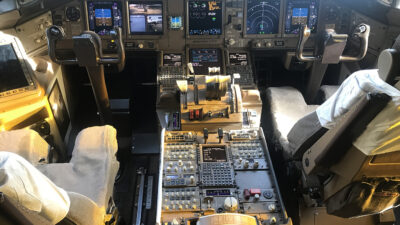As pilots, we’re trained to handle complex systems, challenging weather, and split-second decisions. Yet, one crucial aspect of aviation safety often flies under the radar: our mental health. In an industry where precision and performance are paramount, understanding and managing our psychological well-being is just as important as maintaining our aircraft.
Understanding the Unique Mental Health Landscape in Aviation
The cockpit can be both a sanctuary and a pressure cooker. From student pilots grappling with check-ride anxiety to seasoned captains managing crew dynamics, mental health challenges in aviation come in many forms. The responsibility for passengers’ lives, irregular schedules, and constant performance evaluations create a psychological environment unlike any other profession.
Breaking the Stigma: Mental Health in the Aviation Community
Historically, pilots have been hesitant to discuss mental health concerns, fearing potential impacts on their medical certification. However, the industry is evolving. Modern aviation authorities now recognize that addressing mental health proactively leads to safer skies. Many airlines and flight schools are implementing mental health support programs that protect both pilots’ careers and their well-being.
Practical Strategies for Mental Fitness
1. Pre-Flight Mental Checklist
- Practice mindfulness techniques during preflight inspections.
- Establish regular sleep patterns, even with varying schedules.
- Maintain a consistent exercise routine.
- Develop healthy eating habits that support mental clarity.
2. In-Flight Stress Management
- Use controlled breathing techniques during high-workload phases.
- Practice positive self-talk during challenging situations.
- Implement structured task prioritization.
- Maintain open communication with crew members.
3. Post-Flight Mental Maintenance
- Debrief and process challenging experiences.
- Engage in regular physical activity.
- Maintain social connections outside aviation.
- Practice work-life balance techniques.
Working with Aviation Mental Health Professionals
Aviation psychologists understand the unique pressures of the profession. They provide specialized support while being mindful of medical certification requirements. Many offer confidential consultations and guidance on stress management techniques tailored to aviation challenges.
Maintaining Medical Certification While Seeking Support
It’s crucial to understand that seeking mental health support doesn’t automatically jeopardize your medical certificate. The FAA and other regulatory bodies have established clear guidelines for pilots seeking mental health care. Many common issues, such as mild anxiety or stress, can be addressed while maintaining certification.
Key Resources and Support Systems
- Pilot peer support programs
- Aviation-specific counseling services
- Professional organizations offering mental health resources
- Online communities and support groups
- Employee assistance programs (for commercial pilots)
Preventive Mental Health Practices
1. Regular Self-Assessment
- Monitor stress levels.
- Track sleep quality.
- Evaluate work-life balance.
- Notice changes in mood or behavior.
2. Building Resilience
- Develop strong support networks.
- Practice stress-reduction techniques.
- Maintain physical fitness.
- Continue professional development.
3. Creating Healthy Boundaries
- Set realistic work limits.
- Manage schedule demands.
- Maintain personal time.
- Cultivate non-aviation interests.
The Role of Leadership in Aviation Mental Health
For those in leadership positions, promoting mental health awareness is crucial. Creating an environment where pilots feel comfortable discussing mental health challenges helps build a stronger, safer aviation community.
Looking Forward: The Future of Pilot Mental Health
The aviation industry is increasingly recognizing the importance of mental health support. New technologies, improved support systems, and changing attitudes are making it easier for pilots to maintain both their mental well-being and their careers.
Conclusion
Maintaining good mental health is as crucial as any other aspect of aviation safety. Just as we wouldn’t fly with mechanical issues, we shouldn’t ignore our mental well-being. By understanding available resources, implementing proper stress management techniques, and seeking support when needed, we can ensure we’re performing at our best both in and out of the cockpit.
The skies demand our best, and that includes a healthy mind as well as a skilled hand. Don’t hesitate to reach out for support – your mental health matters, and addressing it proactively makes you a better, safer pilot.
Stay safe, stay healthy, and blue skies ahead.
[Note: Always consult with aviation medical examiners and mental health professionals familiar with aviation regulations for specific guidance regarding your situation.]



